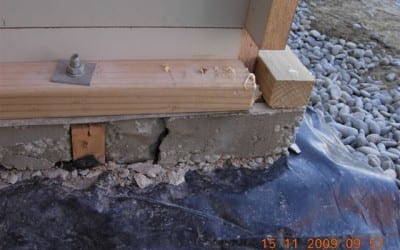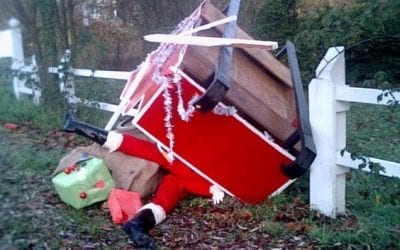Construction is a risky business, more so than most, yet many builders don’t spend enough time really understanding their risk environment and putting in place strategies to manage, avoid or transfer that risk. In this second article in our Understanding Risk series, we focus on the area that is probably best understood: protecting assets from damage or loss.
Four Areas of Risk
- Property/Assets
- Liability
- Financial
- Personal/Family
In last month’s article, we provided a framework to help you evaluate the various risks you face, working out how likely they are and how potentially costly. Putting your assets through this process is a good start. Here’s a suggestion of what to consider:
Business Vehicles
- Who drives them? Could the young apprentice be asked to pop down to the dairy or pick up materials?
- Do you store tools and equipment in them?
- Where are they parked up at night?
- Are they alarmed or disabled?
- Do your workers know the “rules” when driving company vehicles?
- Have you verified workers’ licenses and driving history?
- Have you considered comprehensive vs third party, fire & theft or third party only cover?
- Is your vehicle actually insured as a private vehicle (in which case, a claim may be declined)?
- Have you insured your trailers (they are considered vehicles, not equipment)?
Tools & Equipment
- Do you have an asset register and pictures of your most expensive tools?
- Have you kept receipts/invoices for them?
- Have electrical items been tested?
- What is their total value, and is this their market (old) or replacement (new) value?
- How are they secured when on and off-site?
- If they are stored in vehicles, how secure are they?
- If they were stolen, how would it affect your ability to work?
- Do you know what your excess is for various types of loss (eg, theft vs damage)?
Construction Projects – New Builds
- Have you insured the full value of the construction project, including materials, labour and the increase in costs over the life of the project?
- Have you included the value of materials supplied by the owner, including any subcontractor they employ & and will pay directly?
- Have you insured for the additional costs involved if there is damage, including demolition, professional fees and increased costs during reconstruction?
- Does the period of insurance allow for delays to the completion date?
- Have you advised the insurer if there are variations that increase the project cost?
Construction Projects – Alterations & Renovations
- Have you ensured that the owner has actually arranged this, and you are named on the policy?
- Have they contacted their house insurer to notify them that construction work is taking place?
- Are you covered if the existing structure is damaged during the building work?
We have previously highlighted some of the issues with construction (contract works) insurance. You can read and watch more at: www.builtin.co.nz/contractworks.
Workshop/Office/Shed/Yard
- If you work from home, is your workspace correctly insured with your house & contents insurer? Have they agreed to cover your business assets under your domestic contents policy, and if so, is the cover enough?
- Have you had a valuation, and is it up to date?
- Is your insurer aware of the full range of work being done from the premises, ie, are you doing any manufacturing, hot work or storing hazardous materials?
- Have you reviewed your security measures (eg. fencing, locks, alarms, cameras)?
No doubt, there are other assets that you own as a private person or through a trust, and the principles are the same, but we have focused on the main business assets owned by builders.
Insuring physical assets is the most common form of insurance, but their loss is not necessarily the most risky event (in terms of likelihood and cost) a building business will face. The next article will focus specifically on liability, which means the risk of being held responsible for injury to another person, loss or damage to their property, or financial loss they suffer as a result of actions, mistakes or omissions you are responsible for.




